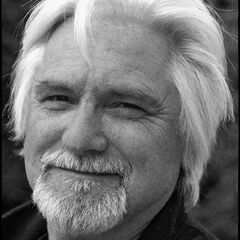Chris Stone
( author, journalist, writer) | |
|---|---|
 | |
| Born | Christopher James Stone 16 June 1953 |
| Alma mater | • Cardiff University • Bristol Polytechnic |
Christopher James Stone (born 16 June 1953), pen name C.J. Stone, is an English author, journalist and freelance writer. He is best known for his columns in The Guardian Weekend and The Big Issue.
In 1971, Chris Stone moved to Cardiff where he attended Cardiff University and studied English Literature, however, he dropped out after two years without completing his course. In 1981, he resumed his academic studies at Bristol Polytechnic (now the University of the West of England) where he gained a 2:1 degree in Humanities.
In 1984, he moved to Whitstable, Kent, and has been living there ever since.[1]
Interview with Tony Benn
Concluding the interview with Tony Benn on 9 October 2000:
CS: Talking about political parties, since the rise of New Labour I have felt disenfranchised. There is no longer a party that represents me and my views. I've heard you refer to New Labour as a coup d'etat on the Labour Party. . .
TB: Yes, it's a new political party. I'm not a member of it. It's probably the smallest political party in the history of British Politics, but they're all in the cabinet so it makes it quite powerful. They've captured the Millbank Tower. They would really like a coalition, I think. If you talk privately, they'd like Ken Clarke and Charles Kennedy in the coalition and have a one-party state. All the guys at the top huddling together to see that people like you never have any influence. I think that's what they're really about. And then Arthur Scargill made the same mistake in setting up the Socialist Labour Party. When I saw Blair a few months ago I said, you and Scargill have made the same mistake, you've set up a new political party. He looked a bit sort of quizzical. But they have.
CS: Except that Blair has power and Scargill doesn't.
TB: Yes, but I mean, they both left the Labour Party. And yet he needs the Labour Party. As we get near polling day you wait and see. Even the Brighton Conference had a touch of old Labour about it. And the unions beat him on pensions: a very important victory.
CS: And following on from that, Ken Livingstone's victory in London: it wasn't just because everybody liked Ken, it's because he was opposing the privatisation of the tube. Opposed to the PFI (Private Finance Initiative).
TB: And also proved to people you don't have to be Tony Blair to win. That was the really important point. Because Blair had been saying, well drop me if you like, but you'll lose. And Ken said, sorry, you can throw me out, but I'll win. And he did.
CS: But then you see the anti-democratic tendencies of New Labour. That despite the fact that this was really a referendum on PFI, they still continue with PFI. That is, they are ignoring the will of the people.
TB: Yes but you have to take a moving picture in politics, not snapshots. I think of all the things I've campaigned on in my life, years and years ago. Gay rights. I introduced a bill in 1989 for an equal age of consent. It was laughed at. Now law. I campaigned for the end of apartheid. Everybody said it will never happen. I'm not saying I did it. You anticipated it. And the PFI will go down the pan because the unions won't have it. And the unions are beginning to feel their muscle again. They wanted Labour to win, quite rightly after the Tories, they want Labour to win again, quite rightly, and there are a few peerages hovering over the heads of the General Secretaries. I wouldn't be surprised if all the principal General Secretaries don't take up with Mr Blair's reformed House of Lords. There are a lot of factors at work. But underneath, where people are people, it's not going to quite be like that.
CS: So you remain an optimist then?
TB: Oh yeah.[2]
Publications
Books
- Fierce Dancing Adventures in the Underground (1996) published by Faber & Faber
- Last of the Hippies (1999) published by Faber & Faber
- Housing Benefit Hill (2001) published by AK Press - a collection of stories that had previously appeared in his column
- The Trials of Arthur (2003) published by Element Books and co-written with Arthur Pendragon - telling the story of the life of the eco-warrior and self-proclaimed Druid king (co-author)
Articles
Chris Stone has had regular columns in The Guardian Weekend and has contributed to The Independent, The Observer, The London Review of Books, The Times Literary Supplement, The Glasgow Herald newspapers, The Big Issue, New Statesman, Prediction, Kindred Spirit, Mixmag and Saga magazines. He currently writes for the Whitstable Gazette.
References
Wikipedia is not affiliated with Wikispooks. Original page source here